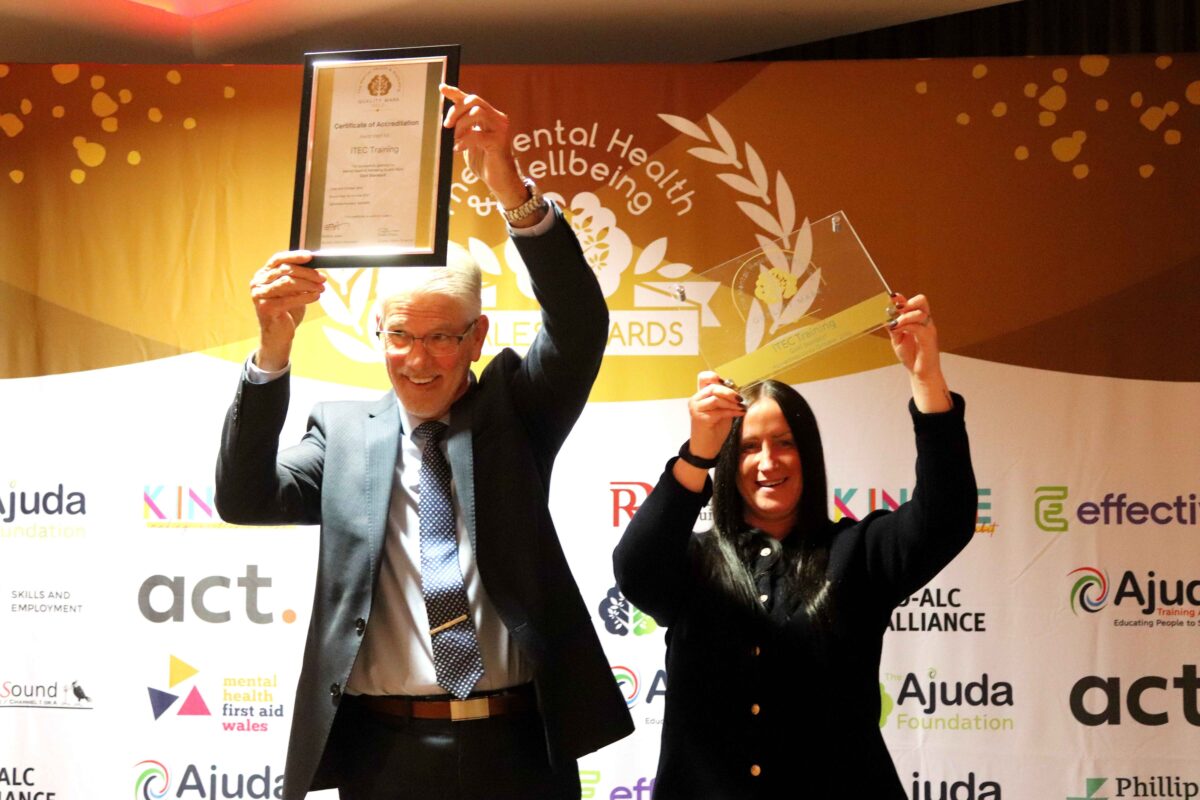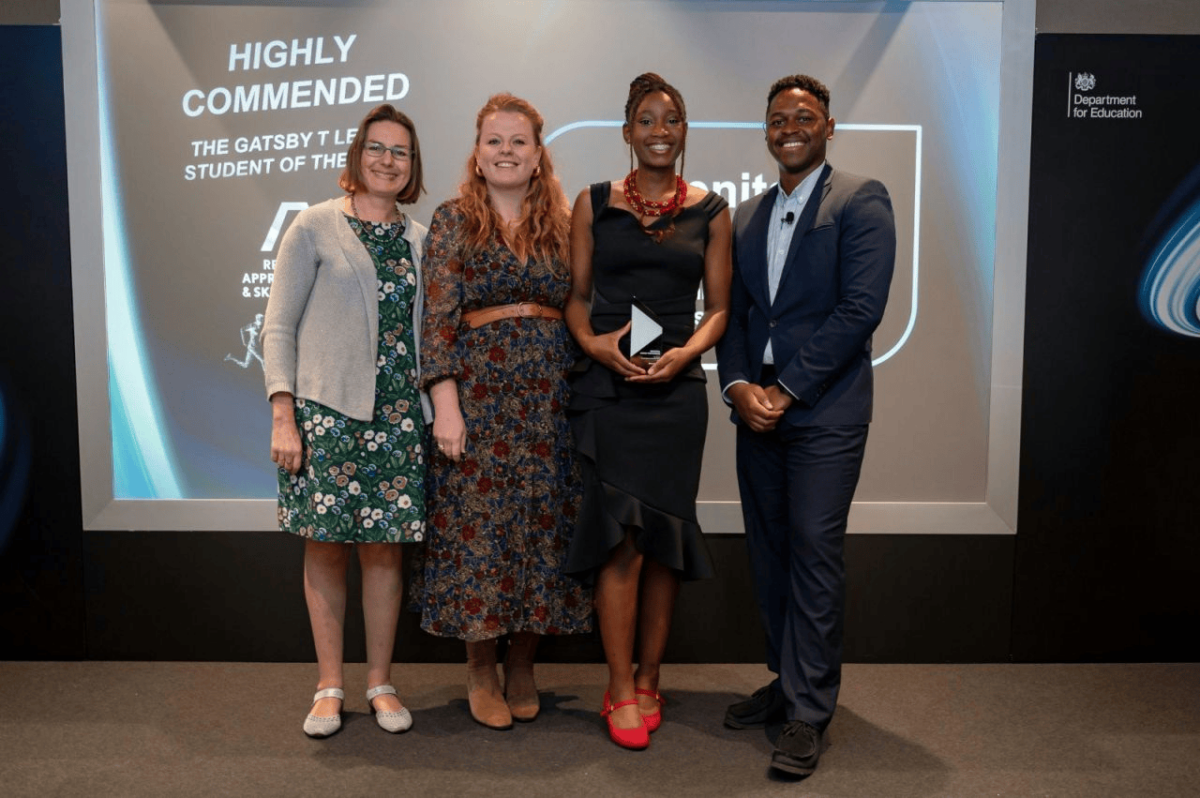Achieving Your Potential: Accessibility for Students with Vision Loss

Students with visual impairments can face challenges with a perceived drop-off in support when they start college, compared to school. Find out what you’re entitled to, the support that’s available at college and how to go about getting it, so you can thrive in this stage of your education.
Many students with visual impairments say that a big challenge they face is the drop-off of support at FE level education, compared to secondary school.
Here we’ll cover much of what you’re entitled to in FE, what support you might need at college, and how to go about getting it, so you can flourish in this stage of your education.
Leaving school
For many young people, moving on from their local school – where they are known to teachers and peers – into further education, is a big step towards the freedom and independence of adulthood.
For others – particularly students with visual impairments – leaving the comfort of the school environment can be a more daunting prospect. At school they’re usually accustomed to their surroundings, easily navigating buildings and classrooms populated by old friends and familiar teachers. Students with visual impairments may also be accustomed to the technical, emotional and academic support offered by TAs, SEND staff or pastoral care.
So, how can students with visual impairments prepare well for Further Education? What support can you expect at college, and what are you entitled to?
In the UK, young people can legally leave school at the end of the school year after they turn 16. However, all young people must be in education or training until the age of 18. Your school may have a sixth form, or you may wish to attend a further education college. Young people with disabilities have a right to a mainstream education, if that’s what they want. Specialist colleges are also available for young people with disabilities.
What support is available to students with visual impairments at college?
Further education (FE) colleges support students with special educational needs and disabilities (SEND) in similar ways to schools. There is a SEND Code of Practice: 0-25 years which colleges must follow, and as part of the Equality Act 2010, mainstream FE colleges must do everything they reasonably can to remove all barriers to learning for disabled students.
Similar to school, there should be a person at FE college who is in charge of SEND provision, so you can contact them if you need help or advice.
If you need extra help with your studies, you will be involved with the college in producing a SEN support plan. This should be reviewed at least three times each year with you, and with your family, if appropriate. Your college is also able to refer you to specialist services outside the college if you need further advice or support. This might include mentoring, assistive technology training, specialist tuition or independent living training.
Specialist further education (FE) colleges
While all young people have the right to a mainstream education, some students with visual impairments might prefer the additional support that a specialist education college can offer.
In the UK, there are a number of specialist further education colleges for young people who are blind or partially sighted, along with colleges which are pan-disability. Many of these have residential facilities, which help young people further their independent living skills before they start work or university. These colleges usually teach useful life skills in addition to the traditional course curriculum.
To apply for a specialist college, you will need an Education, Health and Care Plan (EHCP). You can ask your local authority to name a specialist college in your EHC plan following your annual review. However, your local authority may refuse your request on the grounds of cost. It may be necessary to show them that there are no alternative cheaper education options available.
Please note that there are set legal timescales for the local authority to name the new college for entry in September. For post-16 education colleges, this is 31 March. You will need to think about which college you want to attend in advance of this.
Accessibility for students with visual impairments
Since starting school, you are likely to have experienced an environment that is largely emotionally, technically and practically supportive. Your schooling will usually have been free and you will have been supported by a Qualified Teacher for the Visually Impaired (QTVI).
What happens when you go to college?
When you start further education, you will be dealing with lots of new experiences. New friends, new buildings, a new way of working.
What FE gives you is more freedom. There’s more space to learn your own way and take more responsibility for your learning outcomes. It’s an important step towards the independence of adulthood.
What you may find challenging is the difference in support from your school days. You may not have your QTVI anymore, and your teaching staff will be new to you – and you to them – so they may not know your learning style or the adjustments that you might need for learning materials.
The most important thing you can do is communicate those needs with your college before you start. Some of this is done by your local authority and your school – with input from yourself – but it’s important that you also communicate your requirements. Dolphin has developed a tool that can help you with this.
Be My Best Self is a simple form that helps you consider and communicate what your accessibility needs might be. It gives you a way to open conversations about reasonable adjustments that enable you to be comfortable and thrive at college.
Assessment of your needs at college
Before you start college, your school, local authority and the staff at your chosen college will liaise with you, to help ensure you secure the support you’ll need in all aspects of your chosen course. This covers everything from your classwork, practical activities, field trips and work placements, through to assessments and exams.
As part of this liaison, you’ll need to give permission for your local authority to share information about your plans and support needs from your Education Health Care Plan (EHCP) with your chosen college’s support staff. You’ll be involved in the process of deciding the support you need – so it’s important to speak up about what will help you succeed in college. You will need to agree the support plans, so the college can get them in place before your course starts in the new term.
Reasonable Adjustments
Your college will have Learning Support funding in place to support you with any reasonable adjustments you may need. This might take the form of:
- A support teacher, a support worker, or a sighted guide
- Learning and reading material in accessible formats – e.g. large print or digital
- Assistive technology such as SuperNova Magnifier and Screen Reader
- Technical accessories such as braille readers or document cameras
Assistive Technology is available to help students with visual impairments at college?
Students with visual impairments may already be familiar with assistive technology from their school years, however, it’s likely that many students won’t have used technology a lot in their learning. At college, you may be entitled to specialist assistive technology such as screen readers or screen magnifiers as part of your reasonable adjustments. These can help you access the course materials so you can read and study them independently.
Other sources for learning are available – and they don’t necessarily have a cost attached. For example, EasyReader App can be used across all your devices, and it connects you to libraries and collections of accessible books, along with the means to read them with accessibility features such as enlarged text or audio. In the UK, it links to the RNIB Bookshare Education Collection, which has every textbook available in accessible formats, free.
Learning to use assistive technology well at college will help you access learning material and complete your studies in line with your peers. It will also help ensure you’re technologically adept, so you’re well-practiced and prepared for independent learning at uni, or to access computer systems in the workplace.
Training and support are included free with all Dolphin assistive technology products. Plus, to support colleges and their staff – who may not yet have experience teaching students with visual impairments – Dolphin produces assistive technology guides, runs webinars and has training courses all aimed at educators.
Practical things you can do before you start college:
Attend a college open day or taster sessions
This will help you find out more about the college, explore the campus and experience the college environment – to see if it feels right for you. Open days are a good opportunity to meet some of the teaching and support staff and to find out if the course you want to do is a good fit for you.
At an open day, you may also be able to meet some older students who are already at the college, to ask them questions about their own college experience. Speak to your QTVI to see if they have any contacts at the college who might be able to share their experiences as a student who is blind or partially sighted.
If you’d like some ideas for things you might like to ask about accessibility and your own needs, try the Dolphin ‘Be My Best Self’ form – it helps you identify some of the ways your college might be able to help, and gives you a good starting point to ask the right questions.
Secure funding
There are different funding sources available to college students who are blind or partially sighted. Speak to the Learning Support Adviser or Disability Officer at your chosen college to find out what you are eligible for, and how this funding can be appropriately spent on reasonable adjustments that enhance your learning.
Your college should also be able to advise you on funding, bursaries, grants and learner support. Colleges often have their own policies on who is eligible for funds and grants – so do ask to find out if you qualify for additional funding or support.
Alternative funding such as grants may also be available for students from a variety of other organisations and charities such as RNIB, the Prince’s Trust and the Student Health Association. There are additional grants specifically for students from Wales or Scotland.
Communicating your needs
If you already have SEND support or an EHCP then your school and local authority will liaise with your college, and you’ll be involved in the process of determining your needs. So, speak up to advise them of the support you feel you will need to be your best self and thrive in the next stage of your learning journey.
Before you start the first term, give some consideration to the things you need to ensure you get the best college experience. This might be the format of course materials, access to assistive technology, navigating the college campus, training (for you and for the staff), and even cultural considerations. For example: do you prefer being part of a large group or one-to-one chats? How do you like to be addressed? Are your course mates or staff aware of how to be a sighted guide? What’s acceptable terminology for you regarding your visual impairment?
Review these regularly as your independence and practical experience grows and try to continue to share what you enjoy and what you find challenging, so positive changes can be made.
In conclusion, students going into FE level education can be assured that the support is there. The key is communication. Listen out to find the help that’s already available and speak up about what you think you might need to help you thrive. Use this to build your independence and enjoy your college experience.
By Noel Duffy, Chairman of the Board, Dolphin Computer Access
FE News on the go…
Welcome to FE News on the go, the podcast that delivers exclusive articles from the world of further education straight to your ears.
We are experimenting with Artificial Intelligence to make our exclusive articles even more accessible while also automating the process for our team of project managers.
In each episode, our thought leaders and sector influencers will delve into the most pressing issues facing the FE sector, offering their insights and analysis on the latest news, trends, and developments.











Responses